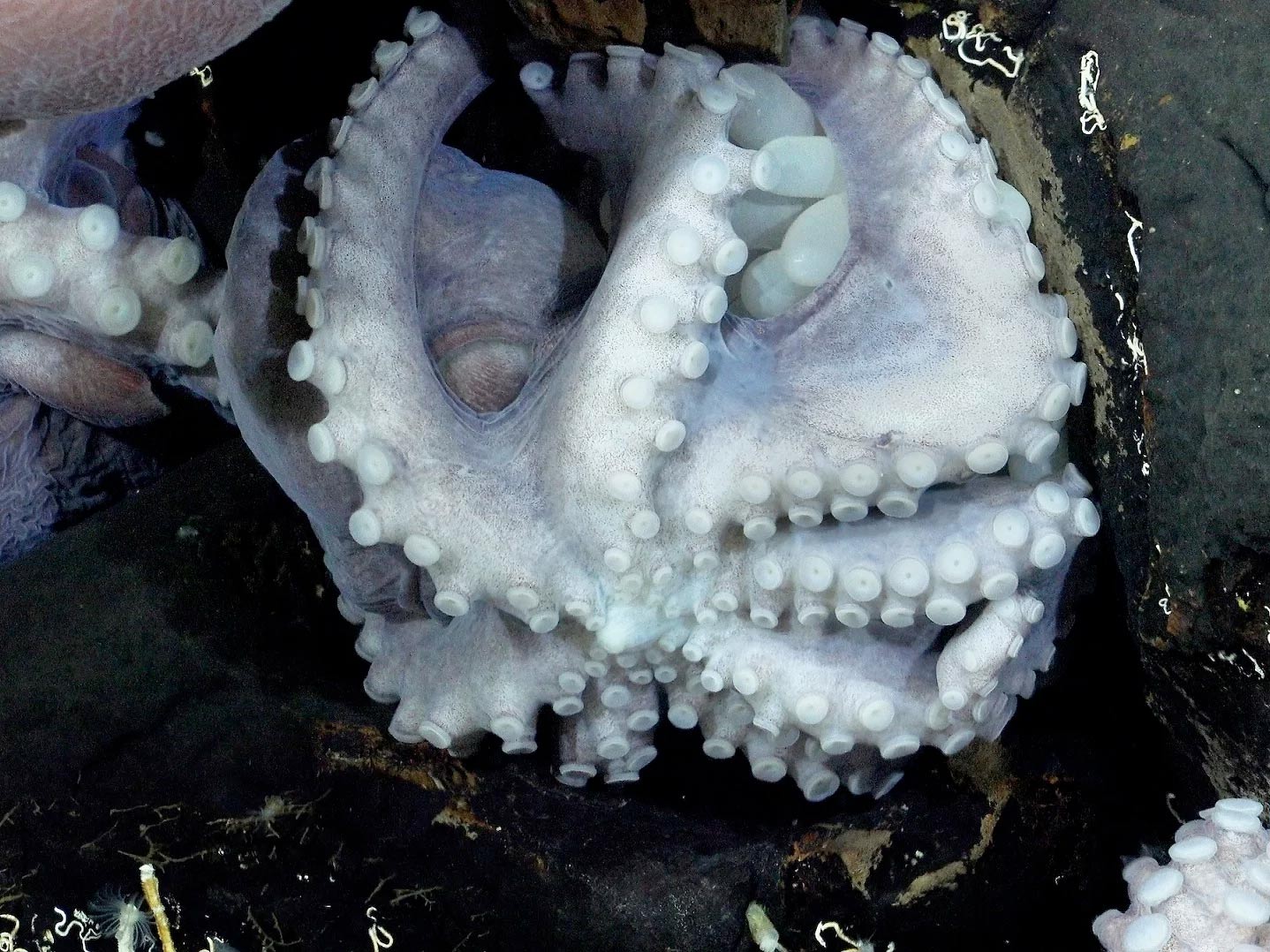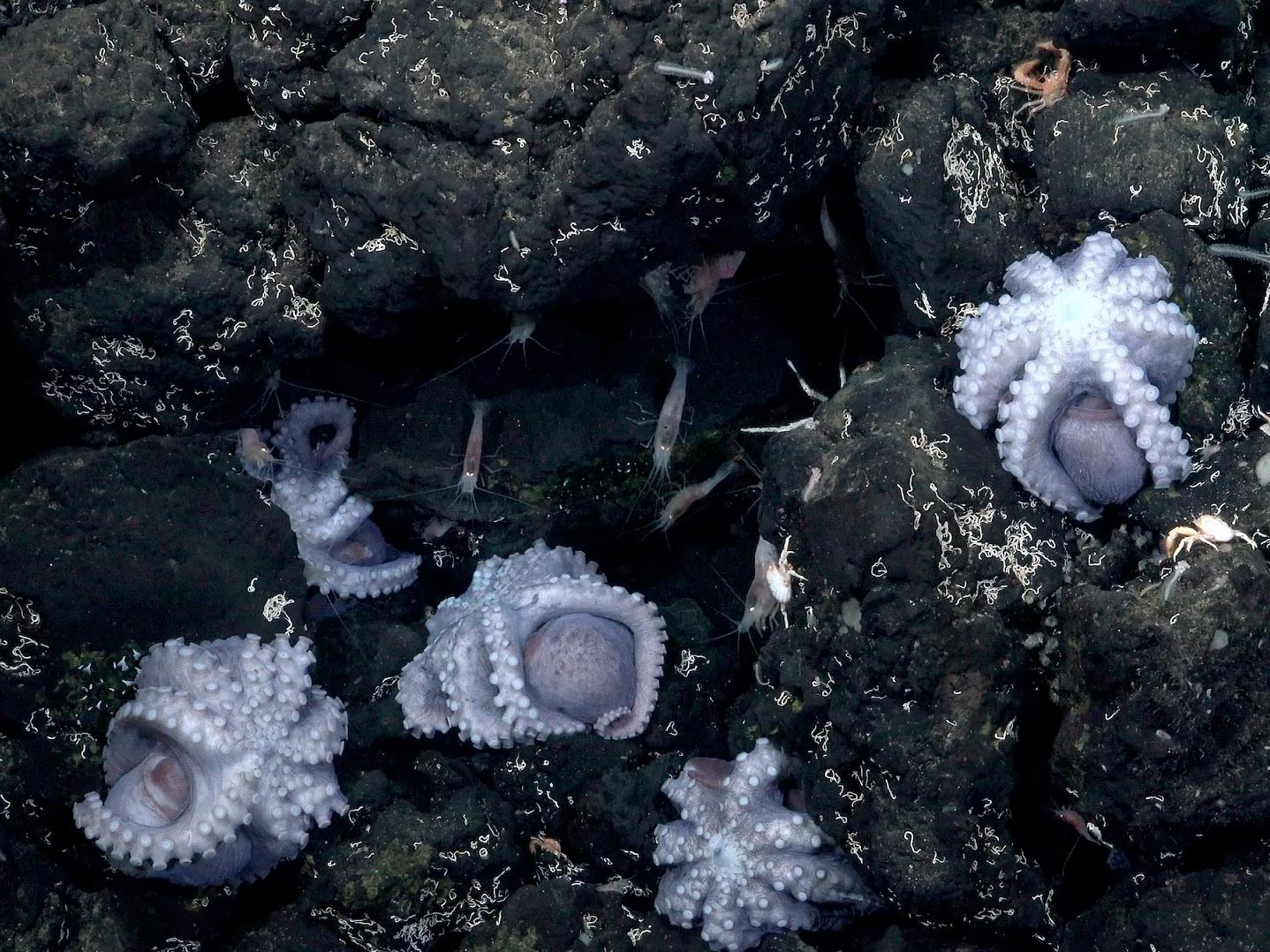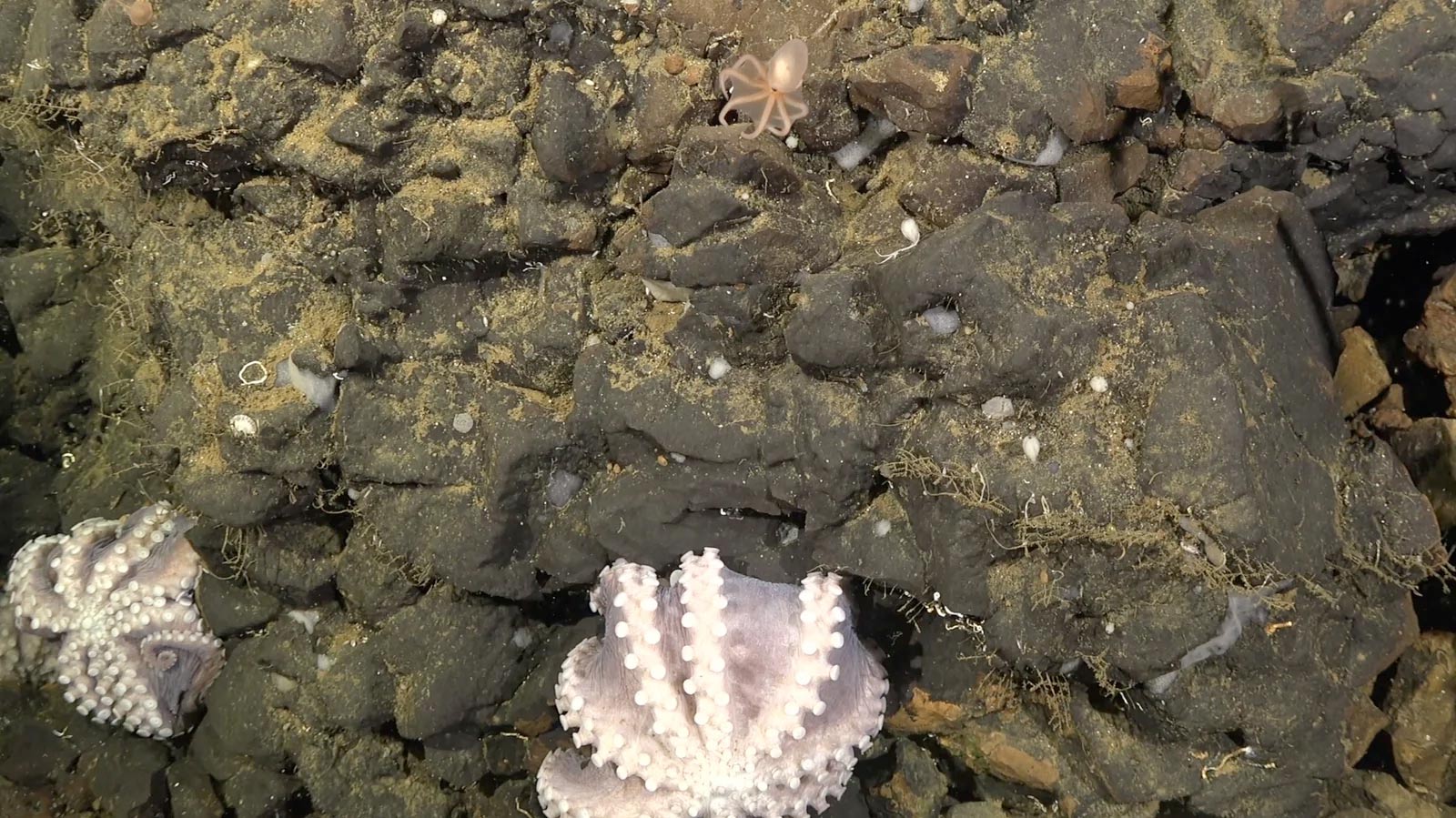 VIEW LARGER Researchers found Muusoctopus nursery grounds on a low-temperature hydrothermal vent off the shore of Costa Rica.
VIEW LARGER Researchers found Muusoctopus nursery grounds on a low-temperature hydrothermal vent off the shore of Costa Rica. "The discovery of a new active octopus nursery over 2,800 meters beneath the sea surface in Costa Rican waters proves there is still so much to learn about our Ocean," Dr. Jyotika Virmani, executive director of the Schmidt Ocean Institute, said in a statement.
According to a press release, researchers witnessed Muusoctopus eggs hatch. They said it demonstrated that the area, known as the Dorado Outcrop, was hospitable to young octopuses.
 VIEW LARGER Scientists working off the coast of Costa Rica say they've discovered the world's third known octopus nursery.
VIEW LARGER Scientists working off the coast of Costa Rica say they've discovered the world's third known octopus nursery. When the Dorado Outcrop — an area roughly the size of a football field — was first discovered in 2013, researchers believed octopuses couldn't grow there because they didn't observe any developing embryos at the site.
Scientists said the discovery also indicated that some deep-sea octopus species brood their eggs in low-temperature hydrothermal vents, such as the one where the nursery was discovered, where fluid heated in the Earth's crust is released on the seafloor — like hot springs.
 VIEW LARGER Researchers found Muusoctopus nursery grounds on a low-temperature hydrothermal vent off the shore of Costa Rica.
VIEW LARGER Researchers found Muusoctopus nursery grounds on a low-temperature hydrothermal vent off the shore of Costa Rica.
The research vessel for the trip was provided by the Schmidt Ocean Institute, a nonprofit research organization founded by former Google CEO Eric Schmidt and his wife, Wendy.
The trip was led by Beth Orcutt of the Maine-based Bigelow Laboratory for Ocean Sciences as well as Jorge Cortes of the University of Costa Rica. According to the researchers, areas like the Dorado Outcrop are still vulnerable to human activities such as fishing, and some Costa Rican scientists on the trip were trying to discern if the underwater seamounts should be legally protected.
"The information, samples, and images are important to Costa Rica to show its richness and will be used for scientific studies, and outreach to raise awareness of what we have and why we should protect it," Cortes said.

By submitting your comments, you hereby give AZPM the right to post your comments and potentially use them in any other form of media operated by this institution.